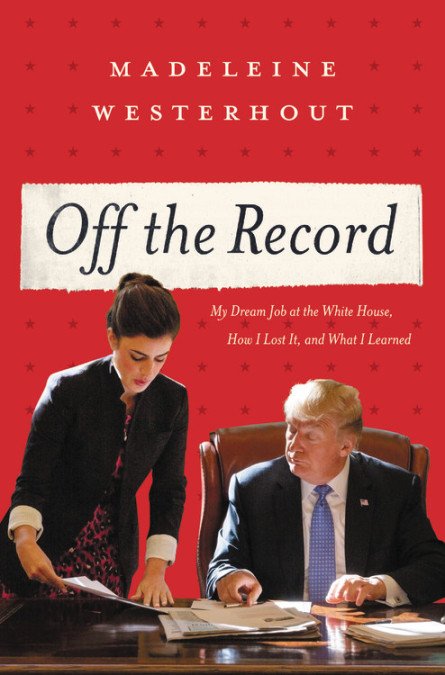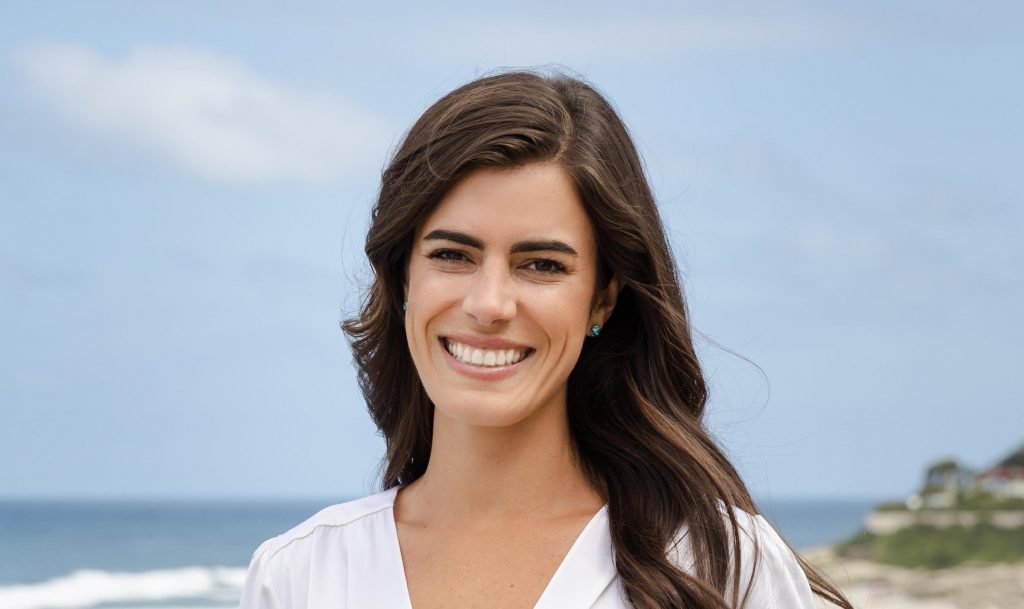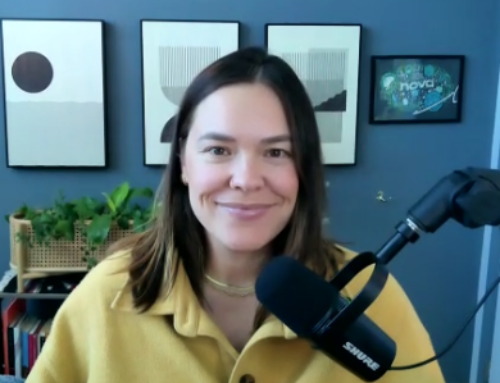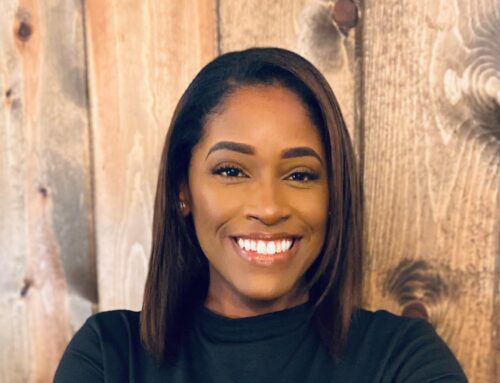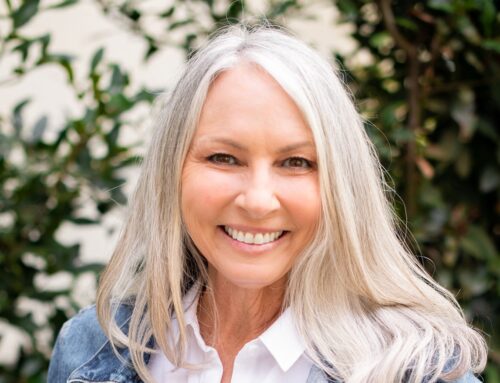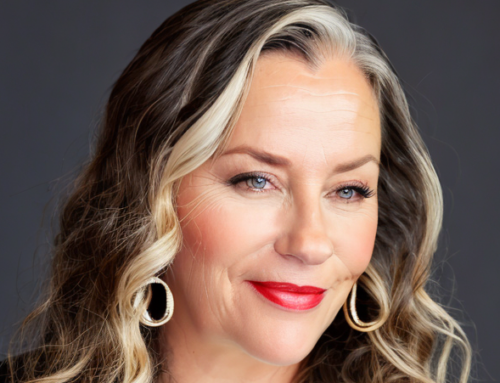Madeleine Westerhout landed her dream job at the White House as executive assistant to the President of the United States – and then lost the job due to a mistake on her part.
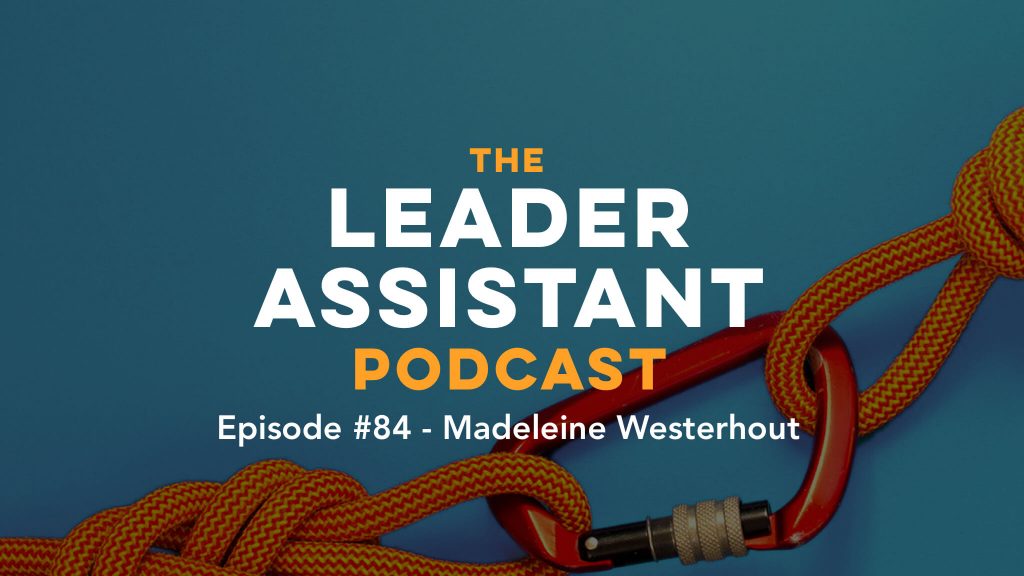
In this episode, Madeleine shares how she ended up as executive assistant to President Donald Trump, what it was like working in the White House as an assistant, how she lost her dream job, and what she learned from the experience.
No matter your political leaning, I trust you’ll enjoy our conversation about being an executive assistant at the White House!
LEADER ASSISTANT MEMBERSHIP
Check out the Leader Assistant Membership for ongoing training, coaching, and community.
MADELEINE’S BOOK
Off the Record: My Dream Job at the White House, How I Lost It, and What I Learned.
CONNECT WITH MADELEINE
ABOUT MADELEINE
Madeleine Westerhout was born and raised in Southern California. She graduated from the College of Charleston with a degree in political science before moving to Washington, DC. After four years at the Republican National Committee, she joined the Trump Administration where she served as executive assistant to President Donald Trump from 2017 to 2019, and the Director of Oval Office Operations from February to August 2019. Madeleine is the author of Off the Record: My Dream Job at the White House, How I Lost it, and What I Learned. (Affiliate link)
THE LEADER ASSISTANT BOOK
Download the first 3 chapters of The Leader Assistant: Four Pillars of Game-Changing Assistant for FREE here or buy on Amazon here.
JOIN THE COMMUNITY
Join the Leader Assistant Slack Community here, or the Facebook Group here for bonus content and to network with other assistants who are committed to becoming leaders!
SUBSCRIBE
Subscribe to The Leader Assistant Podcast so you don’t miss new episodes!
You can find the show on Apple Podcasts, Spotify, Google Podcasts, Pandora, and Stitcher.
Join my email list here if you want to get an email when a new episode goes live.
LEAVE A REVIEW
If you’re enjoying the podcast, please take 2 minutes to rate and review the show on Apple Podcasts here. Each review helps me stay motivated to keep the show going!
—
EPISODE TRANSCRIPT
Jeremy Burrows 0:00
What is good everybody, it’s your host Jeremy Burrows, I’m excited to welcome you to Episode 84 of The Leader Assistant Podcast. Before I dive in with my special guest, I wanted to invite you to join the leader asst online membership. So the membership includes once a month group coaching slash training sessions. It also includes on demand access to prior coaching training events that we’ve had, in the member only resource library, it’s only $39 a month, or you can buy the annual membership for $399 a year. And that brings it down to 33.50 or something like that per month. So you get a little bit of a discount, if you buy the annual membership. Very affordable, you get access to myself and Al Hussein, Matt Hani, my co founder with the leader assistant membership, we have guest speakers and guest training sessions as well. So it’s not just us the whole time. But we really dive deep into the relevant topics like compensation, resumes, job descriptions, artificial intelligence, calendar management, email management, remote work, side hustles, leading in the midst of crisis and anything else that you really need to wrestle with and work through in your career as an executive assistant. And we have a very engaged group, we really dive into specific unique questions that you all have, and that our members are struggling with. And we encourage each other, it’s really a great membership that has been going on most of this year now. And it’s been really encouraging to see it grow and to see the progress that our members have made. Several of our members have secured compensation increases new jobs, and even in the middle of a global pandemic. So check us out at leaderassistant.com/membership. Again, leaderassistant.com/membership It’s $39 a month, or 399 a year, very affordable. When you consider how much training and access you get to top EA professional development coaches and trainers as well as top EAS around the world. So you can connect with your peers as well. Leaderassistant.com/membership
Podcast Intro 2:43
leader assistance podcast exists to encourage and challenge assistants to become confident game changing leader assistants.
Jeremy Burrows 2:53
Hello again, friends just wanted to say a quick note about politics. This episode and this podcast. And my mission to help executive assistants is not about politics. And I try not to bring politics into it. So just wanted to encourage you no matter what side you are on when it comes to particularly American politicians or politics and philosophies. Republican, Democrat, Independent, whatever you are, just wanted to encourage you to listen to this episode through the lens of an executive assistant, not a Republican or a Democrat. So as long as you’re good with that, then I’m good to start the interview. All right, let’s jump in. Hey, everyone. Thanks for tuning in to The Leader Assistant Podcast. It’s your host Jeremy Burrows. And today I’m excited to be speaking with Madeleine Westerhout. Madeleine was former executive assistant to President Donald Trump, and also the director of oval office operations in 2019. Madeleine how’s it going?
Madeleine Westerhout 3:59
Hi, Jeremy. It’s going great. Thanks so much for having me.
Jeremy Burrows 4:02
Yeah, what part of the world are you in?
Madeleine Westerhout 4:04
I am in Southern California and San Diego actually.
Jeremy Burrows 4:08
Awesome. Awesome. Well, we’re gonna jump right in. And yeah, just ask you a few questions and get to know a little bit of your story.
Madeleine Westerhout 4:16
Great. Looking forward to it.
Jeremy Burrows 4:17
So why don’t you start off? Tell us about when and why you became an executive assistant?
Madeleine Westerhout 4:25
Sure. I graduated from the College of Charleston in 2013. And I moved up to Washington DC right after that with an internship on Capitol Hill. I was told that it would be very difficult to get a job in DC if I wasn’t physically in DC. So I secured an internship moved up there and once I got moved in, I started applying for jobs. I was looking at jobs on Capitol Hill as schedulers for different congressmen or senators and then the opportunity presented itself to work at the Republican National Committee, and the position was executive assistant to the finance director. And so I decided to interview for that job. And the woman that was, would be my boss, Katie Walsh, is about six years older than me. And so I was 22 at the time. So she was in her late 20s. And I was just incredibly impressed by her. And we hit it off right away. And I think that is something that’s so important as an executive assistant is to, to find someone that you really gel well with. And so I hit it off with Katie, she hired me, and I stuck with her for the next four years, she became the chief of staff at the Republican National Committee was very heavily involved in the 2016 presidential campaign. And once Mr. Trump won the election, she gave me an opportunity to either stay with her or do something else. And so I decided to obviously do something else. But that is how I got my first job.
Jeremy Burrows 6:05
Wow. So had you thought of the executive assistant role before, like, if you had you thought about career before,
Madeleine Westerhout 6:14
I don’t think I had specifically thought of that career. I think I moved up to DC, you know, I just graduated from college, and I was looking at entry level positions. And this opportunity just presented itself. And I, you know, I really wanted a job, I was not going to be one of those college graduate, you know, recent college graduates who was still having their parents pay for everything. And so this opportunity presented itself and it seemed really exciting. I honestly didn’t know too much about what the Republican National Committee did. But once I learned a little bit more about it, it seemed like something that I wanted to be involved in. And again, I was just so you know, enamored by Katie and I, I learned a lot from her. And she was such a great mentor to me. And so throughout my time with her, you know, I probably could have gone on to do something else to move up or move, you know, move into a different position. But I just really loved serving her and working for her. And she provided me with so many great opportunities that that just continuing to be her assistant, was something that I wanted to do.
Jeremy Burrows 7:22
So when you you trance transition into starting to work with President Donald Trump. What, tell us a little bit about, like the day in the life of an assistant at the White House.
Madeleine Westerhout 7:37
Sure, absolutely. So after Mr. Trump won the election, I went up to New York City, and, and spent some time up there, and was working on the transition team. And so I did a lot of interviews and scheduling, scheduling interviews for the president elect, and he was bringing in, you know, CEOs, members of Congress, everybody just to kind of interview different people, in order to build his cabinet and his senior staff. And I had expected to go into the White House with Katie. Katie was the Deputy chief of staff at the White House. And one day she, she came up to me and she asked me if I had any interest in sitting outside of the Oval Office. And I honestly had no idea exactly what she was talking about. But I said, of course, that sounds pretty great. And the the the position was available, and that position was executive assistant to the President of the United States. And, you know, that’s pretty much the highest level you’ll you’ll get. And so of course, I wanted to take on that that role and that opportunity. And what’s really unique about the White House, especially in a brand new administration, is that we’re all on the same page. We’re all starting fresh together. And so that was one thing that I helped that I think really helped me succeed as President Trump’s executive assistant was because we were kind of both going into this with fresh eyes and starting, starting new together. And so we we were able to kind of find our way. And he was, you know, learning how to be the president while I was learning how to be his assistant, and I hadn’t spend much spent much time with him before he got inaugurated. So I didn’t really know the ins and outs of how he liked things done. But I was able to learn very quickly with him. And you know, he has so much staff. And it is a lot different. I think most executive assistants are used to being the ones who schedule everything and kind of keep track of everything, but the President has an entire scheduling department. So my job was never to to schedule all of his meetings, but really to kind of keep the trains on the track. And so that’s really what I tried to do and keep everyone in line. You know, keep everyone where they needed to be. Make sure that everyone that needed to be in the Oval Office at a certain time. Time for certain meeting was there. And it was just constant energy and movement. And it was a very exciting day to day.
Jeremy Burrows 10:08
So be honest with me, how many times did you get lost in the Oval Office.
Madeleine Westerhout 10:14
So the first time I walked into the White House was Inauguration Day. And I feel very lucky because I was I was able to kind of step in and get my bearings, while the President was still at the parade. And so I walked in, and someone brought me to my desk, and I said, this is your desk, and behind that door, that’s the Oval Office, I was like, Oh, my goodness, this is pretty unbelievable. So I had a few hours of downtime to kind of get to know the West Wing, but it’s very, it’s a very confusing place, it’s a lot smaller than most, most people think. And the Oval Office is a lot smaller as well. But the West Wing is lots of hallways, lots of doors, lots of rooms that have three or four doors, you know, the Oval Office has four doors, the Cabinet Room has two as three doors, the Roosevelt Room has three doors, and so it’s very easy to get lost. So those first few weeks, it was definitely just kind of a try to try to make it to my desk every single day without getting lost.
Jeremy Burrows 11:19
Did you walk in on the wrong meeting? A couple times.
Madeleine Westerhout 11:22
I don’t think I ever walked in on the wrong meeting. Maybe I walked into a meeting at the wrong time. But you know, the the one thing about President Trump that I found so encouraging was that he was really easygoing, and really good to his staff. And so whenever I made a mistake, you know, he, he kind of wanted me to correct it. But he was never, he never yelled at me, he was never too tough on me. He expected a lot. He expected perfection. But he also understood that people make mistakes. And we’re all in this together. And we’re all learning at the same time.
Jeremy Burrows 12:02
So what’s one thing maybe you didn’t like about the role?
Madeleine Westerhout 12:07
I think one of the hardest things about being an assistant is that your time is never your own. You’re always, you know, going off of someone else’s schedule and worrying about someone else. And, you know, especially at the White House, we never had, I didn’t have set hours. So it wasn’t like I got to get into work at nine and leave at five. It was really whatever the President’s schedule was, was my schedule. And so sometimes that was, you know, a little bit of an earlier day if he was leaving and going out of town. And sometimes that was a really, really late night. And so that was difficult to never be able to, to fully have my own time and my own schedule. But of course, that’s something that that goes along with the job. And I was, I was happy to stay late and work in the White House. Yeah.
Jeremy Burrows 12:53
So there’s probably someone listening who dreams of being an assistant or another role in the White House, how would you encourage them to kind of start working toward that goal of somehow working in the White House?
Madeleine Westerhout 13:09
I think, you know, for me, of course, as a as a young politico just graduating from college with a political science degree, of course, dreamed of working in the White House. But there’s no real playbook on on how to get a job at the White House. And so in my situation, it was a lot of hard work. But it was also a lot of luck and a lot of kind of being in the right place at the right time. But especially this administration, obviously, I haven’t ever worked for any other administration. But this administration has a lot of, of young professionals and people that are excited about politics. And so I would just encourage people to get to know what you’re interested in, whether that be a policy item, or if you’re really interested in traveling or scheduling, you know, there’s so many different roles. And one of the coolest things about the White House is that you could maybe you’re interested in policy, but you’re not quite ready to, to jump into being a policy advisor. You could go be an assistant to someone like a Stephen Miller, who is the, you know, a policy person. And there’s so many different agencies. So there are a lot of opportunities and a lot of opportunities for growth, which I also don’t think it’s something that people realize.
Jeremy Burrows 14:30
Great, so can you tell us about your kind of transitioning to your book and kind of how that all came about? Can you tell us about your off the record mistake and what you learned from losing your dream job?
Madeleine Westerhout 14:43
Yes, absolutely. So about a little over a year ago, it was August of 2019. I went with the President to his property in Bedminster, New Jersey. And we spend about 10 days there because every August there needs to be some renovations in the White House and you just have to get the four His family out of the White House because it’s also you know, it’s an office, but it’s also where they live. So we were in Bedminster for about 10 days, it was the last day of our trip. And the President was so gracious whenever we traveled with him and always encouraged us to take advantage of the facilities at his property. And so I was enjoying a very rare day off lounging by the pool. And I had had a couple of drinks and accepted an invitation to an Off The Record dinner with four reporters and a White House colleague of mine. And, you know, obviously, my job was as, as the President, executive assistant was not to speak to the press, and not to engage with the media, which is something that I always prided myself on. You know, I learned very early on that nothing good really came from engaging with the media, unless that was your specific role. And it was not mine. But on this day, I had a very major lapse in judgment, when I accepted this invitation to this dinner. And the reporters at the dinner, you know, we’re very used to having policy people or different administration officials to talk to, but they had never talked to someone who knew the President and his family so intimately, and so well. And I think they really kind of lunged at the opportunity to talk to me. And I was so used to being someone who was stayed behind the scenes and, and really was just, you know, someone who was not ever and in the forefront of anything, and that that got the best of me, and I said some things at that dinner that I should never have said, and that I didn’t mean, and that information, did not stay off the record, it eventually got back to the chief of staff and to the President himself. And I was asked to resign, which of course I did. And it was absolutely devastating for me, because I loved my job. And I loved the President and his family. And I was just so disappointed in myself that I had made a mistake. And so when I left, kind of the last thing that I wanted to do was to write a book, there have been so many books about this President and this administration, and I never wanted to be someone who just left and wrote a book. But after a while, I decided that, you know, I wasn’t quite ready to jump into something new. And I honestly wasn’t quite sure what I wanted to do. And so I decided that writing a book would be very helpful for myself personally. And it ended up being very cathartic, and was really quite a therapeutic experience. And I was also able to share with people, the man behind the president, and anyone who is an assistant knows that their boss has to be kind of one person in public. But then there’s this other layer to every single human being, whether they’re a wife, a husband, a mom, a dad, a son or daughter, you know, there’s the more personal aspect to everybody. And so I was able to share with with people, this kinder gentler side to the President.
Jeremy Burrows 17:57
So when you worked on the book, and everything, you know, assistants, you know, I’ve been an assistant for 13 plus years. We talk a lot about, you know, the importance of confidentiality, we talk a lot about how, oftentimes since we support people in power, we may not be the president. But there are a lot of different positions of power in our society that assistant support. And a lot of times people will, they like to be close to power. And they like to kind of have the inside scoop on whoever’s in charge and has the power. So a lot of times assistants will kind of people will kind of get close to the assistant to try to get close to their executive. So as you kind of you said it was cathartic and going through this whole process of owning your mistake and moving forward and and all that. How would you kind of what’s the lesson learned or the takeaway, the lesson for those listening who they do, they also have people coming to them trying to get the inside scoop from their executive, and they want to be you know, they want to be social and have friends, but they find that okay, I have to kind of keep things close to the chest. And I just can’t. I just can’t. Yeah, absolutely. Any tips on?
Madeleine Westerhout 19:23
Sure. Well, I think one of the things you know, the the President I was able to speak to the president after I left and apologized to him and he forgave me and I think one of the reasons that he forgave me so quickly, was because he knew that in my heart and nine and a half point nine and a half times out of 10 I was very trustworthy. And I did not speak to anybody about anything, you know, obviously, working in the White House is very interesting. And so I’d always come home, and friends and family would just ask very harmless questions, and I would never talk to anybody about anything and I think that is something that people respect. And so it might be difficult to not be able to talk about your job, or talk about the person that you support. But I think most people respect that trust in you. And, you know, that’s one of the things why I was so disappointed in myself is because I knew the irony of this situation was that I was someone that was very trustworthy, and I just made a mistake. And that’s, that happens to a lot of people. Unfortunately, in this situation, it happened on, you know, a national and even international stage. But I would just encourage people to continue to just keep that confidentiality, keep that trust, because there is nothing that is worth losing the trust of the people that you care about.
Jeremy Burrows 20:52
Yeah. So okay, so what’s next for you? Are you excited about the assistant role again, someday? Are you kind of shifting gears? Are you still TBD?
Madeleine Westerhout 21:04
I honestly am still TBD. I think the whole world right now is really an uncertain place. And the Coronavirus, has has impacted a lot of things. And so, you know, the next couple of months, I’m just interested and really excited about sharing my book with as many people as possible. But I have always loved supporting others. And I’m not exactly sure what that will look like next. You know, I would love to potentially support another executive or even support a family that might need, you know, more of a chief of staff for their family. But I am excited, and I’m open to different opportunities. But honestly, I just haven’t been able to find the right. The right. Next step yet.
Jeremy Burrows 21:54
Yeah. Cool. Yeah. It’s, it’s interesting when, you know, I talk to all these assistants. And then myself as well, like, we’re just kind of it’s like we’re born to want to help others. Yes. Like, you can’t get away from it.
Madeleine Westerhout 22:09
Yeah, exactly. And it’s funny, because, you know, one of the reasons that I had a different title, at the end of my time at the White House Director of oval office operations is because I wanted to whenever I did leave, the White House wanted to have a role that was not just assistant, but I think, you know, I think people really, really underestimate assistants, because honestly, there could be nothing could get done without a good assistant. But in some, you know, in some fields that that title, unfortunately, it’s not as respected as what as much as it should be. And so I kind of convinced the president to basically give me a different title, but told him I’d be doing all of the same things for him. Which of which I did. But yeah, that executive assistant role is something that I’m incredibly proud of. And I think, you know, I worked with a lot of very senior people and their assistants. And honestly, I can tell you, and I’m sure you know, this better than anyone that the world would would not work without without us.
Jeremy Burrows 23:18
I agree, I agree. Can you give us a little insight on how you because a lot of assistants are trying to get similar. Similarly, or trying to get different titles. For those reasons, any tips on convincing your executive to give you a different title,
Madeleine Westerhout 23:37
I have been so fortunate to work for people that have encouraged me and empowered me, and wanted me to move up. And I can’t tell you the amount of times that Katie, my first boss, you know, asked me what I wanted to do next, and what she could help me get like, what what the next job is, and I told her, like, I want to stick with you, I like being your assistant, I like supporting you. And so I think if you have an executive that is willing to invest in in you, then you should take advantage of that. I don’t I mean, obviously, every situation is different. But you know, maybe talking to your executive about a certain area of the field that you’re interested in and sitting in on on one meeting a week, where you get to little learn a little bit more about that field. You know, I think most people want others to succeed. And as long as you continue to do your job and get the work done, I can’t imagine that there’s anybody who wouldn’t want to invest in you know, in someone who is up and coming in their career. Yeah.
Jeremy Burrows 24:45
Awesome. Well, Madeleine, thank you so much for taking time out of your day to share your little bit of your story. Very excited to share this with the world. What, what’s the best way to get a hold of you or to find you on social media or or should we just encourage people to go to Amazon and pick up your book?
Madeleine Westerhout 25:03
Yeah Amazon is a great place to buy my book I also did my own audible which it which is I’m very very proud of but I have an Instagram Madeleine_Westerhout and my Twitter is MeWesterhout.
Jeremy Burrows 25:17
Perfect, I’ll share those links in the show notes. And yeah, thanks again and have a great one.
Madeleine Westerhout 25:22
Perfect. Thanks, Jeremy. Have a great day.
Jeremy Burrows 25:24
Thanks again to Madeleine for a great interview. You can check out the show notes at leaderassistant.com/84. Again, leaderassistant.com/84 To find the link to her book and her Twitter and Instagram, as well as a link to our membership leaderassistant.com/membership If you want to go directly there. Check it out. $39 A month 399 A year for ongoing training community and professional development for executive assistants and Administrative Professionals. All right, we’ll talk to you next time. Have a good one.
Podcast Intro 26:07
Please review on Apple podcasts. Goburrows.com

